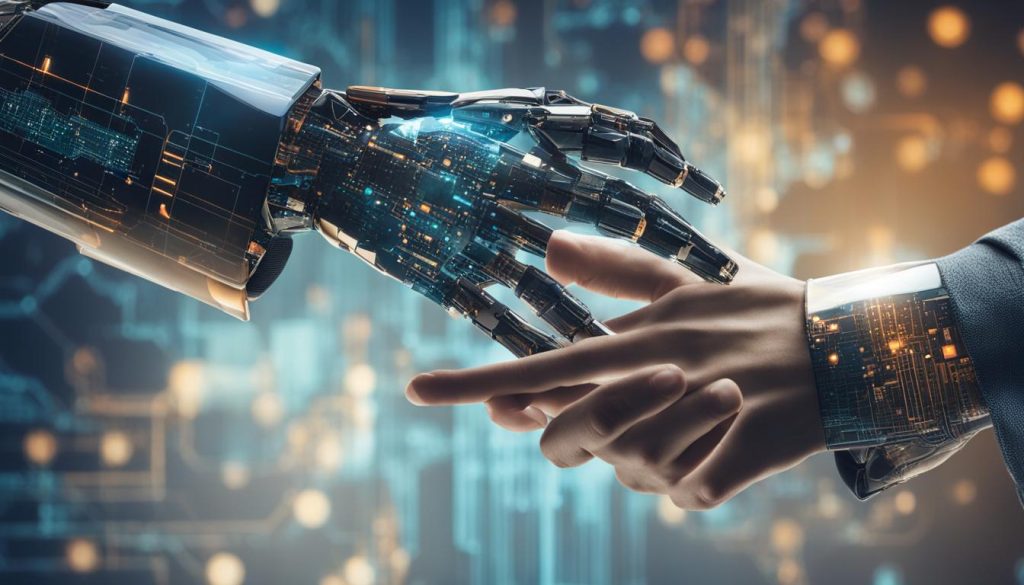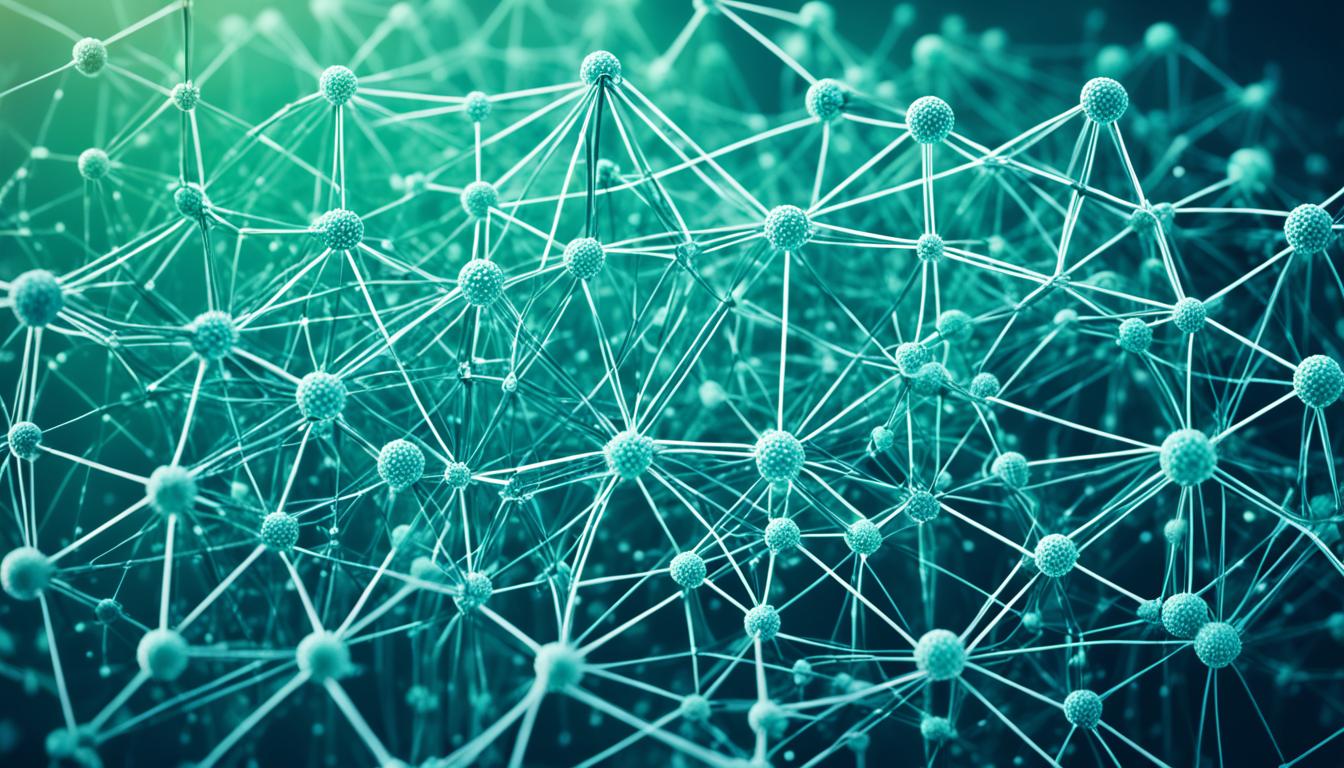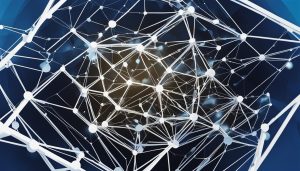Artificial intelligence (AI) has revolutionized the field of data analytics, providing organizations with powerful tools to uncover hidden patterns and insights. By harnessing the capabilities of AI, businesses can make informed decisions and drive innovation like never before. In this article, we will dive deep into the impact of AI on data analysis, showcasing real-world case studies from various sectors in India such as healthcare, finance, agriculture, governance, and education. Get ready to discover the endless possibilities of AI in data analytics.
Key Takeaways:
- Artificial intelligence is a powerful tool for data analytics, enabling organizations to find hidden patterns and trends.
- AI has transformed healthcare by facilitating personalized treatment and precise disease diagnosis.
- In the agricultural sector, AI optimizes crop yield and predicts weather patterns, enhancing food security and increasing farmer incomes.
- Integrating AI with human expertise is crucial for maximizing its value and ensuring accurate interpretation of results.
- Adopting best practices in utilizing AI tools for analytics, such as defining clear objectives and ensuring data quality, is essential for success.
Through this exploration of AI in data analytics, we hope to inspire you to leverage the power of AI to drive innovation and make data-driven decisions that accelerate your organization’s growth.
AI in Healthcare: Diagnosing Diseases and Personalized Treatment
The healthcare sector in India faces significant challenges due to its large population and limited resources. However, the emergence of Artificial Intelligence (AI) has provided innovative solutions to overcome these obstacles. With its remarkable ability to analyze vast amounts of medical data quickly and accurately, AI is revolutionizing healthcare.
AI algorithms can analyze patient records and diagnostic reports, aiding in the development of personalized treatment regimens and improving disease diagnosis. This breakthrough technology has the potential to transform healthcare delivery, leading to better patient care and improved outcomes.
By harnessing AI’s power, healthcare professionals can achieve a more precise and efficient diagnostic process. AI algorithms can identify patterns in medical data that may not be obvious to human experts, leading to more accurate diagnoses. Moreover, AI can assist doctors in creating tailored treatment plans that address the specific needs of individual patients.
One of the key benefits of AI in healthcare is its ability to enhance the practice of precision medicine. By analyzing patient data, including genetic information, AI algorithms can help identify optimal treatment options based on an individual’s unique characteristics. This personalized approach to healthcare has the potential to improve patient outcomes and reduce the risk of adverse reactions to treatments.
AI in Disease Diagnosis
AI’s diagnostic capabilities in healthcare are particularly noteworthy. By analyzing medical images, such as X-rays and MRIs, AI algorithms can detect subtle abnormalities that may indicate the presence of diseases. This not only expedites the diagnosis process but also helps doctors make more accurate and timely treatment decisions.
“The integration of AI in disease diagnosis has the potential to revolutionize healthcare. It offers the opportunity to detect diseases at earlier stages and improve patient outcomes.” – Dr. Ramesh Kumar, Chief Medical Officer at ABC Hospital
AI algorithms can process vast amounts of medical data and identify patterns that are often difficult for human experts to detect. This analytical capability can support doctors in making informed decisions, leading to better treatment outcomes.
AI and Personalized Treatment
The field of personalized medicine is greatly benefiting from AI technology. By analyzing patient data, including genomic information, AI algorithms can help doctors determine the most effective treatments for individual patients. This personalized approach can significantly improve patient outcomes and lead to more targeted interventions.
| Treatment Type | Benefits of AI |
|---|---|
| Cancer Treatment | Identifying specific cancer subtypes and recommending targeted therapies tailored to an individual’s tumor characteristics. |
| Chronic Disease Management | Developing personalized treatment plans that consider an individual’s risk factors and genetic predispositions. |
| Mental Health | Supporting the identification of suitable psychiatric interventions based on an individual’s unique profile and treatment history. |
These are just a few examples of how AI is driving personalized treatment in healthcare. By combining patient data with AI-driven insights, healthcare providers can offer targeted interventions that optimize patient outcomes.
As AI continues to evolve, it holds immense promise for the healthcare industry. By leveraging AI’s capabilities, healthcare professionals can unlock new insights and drive innovation in patient care. However, it is essential to balance the use of AI with the expertise of healthcare providers. Human oversight remains crucial in validating AI-generated insights and ensuring patient safety throughout the diagnostic and treatment processes.
In the next section, we will explore how AI is transforming the agricultural sector, optimizing crop yield, and predicting weather patterns.
AI in Agriculture: Optimizing Crop Yield and Predicting Weather Patterns
Agriculture is a vital sector in India, and AI is revolutionizing it by optimizing crop yield and predicting weather patterns. With the implementation of AI-powered solutions, farmers can monitor soil conditions, crop development, and pest infestations more efficiently. Additionally, remote-sensing and AI-powered agricultural drones collect crucial information and provide timely insights to farmers, empowering them to make informed decisions and improve their farming practices.
By harnessing the power of AI in agriculture, farmers can overcome challenges such as unpredictable weather conditions and fluctuating crop yields. AI algorithms analyze vast amounts of data, including historical weather patterns, soil nutrient levels, and plant growth data, to generate accurate predictions and optimize crop cultivation strategies.
Moreover, AI-driven technologies enable precise resource allocation, allowing farmers to optimize water and fertilizer usage based on specific crop requirements, minimizing waste and conserving resources. This not only enhances crop yield and quality but also promotes sustainable farming practices.
Table: Impact of AI in Agriculture
| Benefits of AI in Agriculture | Examples |
|---|---|
| Optimizing crop yield | AI algorithms analyze data to determine the best planting, irrigation, and harvesting techniques. |
| Predicting weather patterns | AI models utilize historical weather data to forecast precipitation, temperature, and other weather parameters. |
| Early pest detection | AI-powered drones and sensors detect signs of pest infestations in crops, enabling prompt intervention. |
| Enhancing resource efficiency | AI-based systems optimize resource distribution, reducing water and fertilizer wastage. |
The integration of AI in agriculture has the potential to enhance food security by ensuring efficient resource utilization, minimizing crop losses, and supporting sustainable farming practices. By employing AI technologies, farmers can increase their incomes and establish more resilient agricultural systems.

Integrating AI with Human Expertise
While AI tools offer advanced analytical capabilities, it is essential to integrate them with human expertise to unlock their full potential. AI has the ability to process large amounts of data quickly, but it lacks the human qualities of intuition and contextual understanding. To make informed decisions and interpret the results accurately, the collaboration between AI and human expertise is crucial.
Human experts bring a unique perspective to the data analysis process. They can validate the insights generated by AI, ensuring their accuracy and relevance. Furthermore, human oversight of AI is necessary to identify potential biases and correct any inaccuracies that may arise. By combining the analytical capabilities of AI with the critical thinking and domain knowledge of human experts, organizations can achieve more robust and reliable results.
“The fruitful partnership between AI and human expertise allows us to leverage the strengths of both, ultimately enhancing the quality and applicability of data analysis.”
Integrating AI with human expertise also ensures ongoing accuracy and efficiency of AI models. Human experts can continuously monitor and refine the AI algorithms to adapt to changing data patterns and trends. This iterative process of collaboration between AI and human experts fosters continuous improvement, allowing organizations to stay at the forefront of data analysis and innovation.
By embracing the integration of AI with human expertise, organizations can harness the power of AI tools without undermining the importance of human intuition and knowledge. This synergy between AI and human collaboration is the key to maximizing the potential of AI in data analysis and unlocking transformative insights.

Benefits of Integrating AI with Human Expertise:
- Enhanced accuracy and relevance of insights
- Identification and mitigation of potential biases
- Ongoing validation and refinement of AI models
- Improved decision-making and problem-solving
- Ability to adapt to changing data patterns and trends
Conclusion
In conclusion, the integration of AI technology in data analytics holds immense potential for various sectors. By embracing AI tools, organizations can unlock valuable insights, make well-informed decisions, and propel innovation. For data professionals, acquiring the skills to effectively utilize AI is crucial, ensuring their competitiveness in the rapidly evolving field of data analytics.
To reap the benefits of AI in data analysis, organizations should adhere to best practices. This includes defining clear objectives, ensuring high-quality and well-prepared data, and addressing challenges and ethical considerations. Additionally, integrating AI with human expertise is key to maximizing the potential of AI tools, as human intuition and contextual understanding are paramount in interpreting results and maintaining accuracy and efficiency.
Looking ahead, the future of data analytics is synonymous with AI. As AI continues to evolve and transform industries, organizations that embrace these advancements will have a significant advantage. The ability to uncover hidden patterns, trends, and insights through AI-powered data analytics will drive innovation and shape the future of decision-making.
In conclusion, AI is reshaping the landscape of data analytics. By harnessing the potential of AI technology, organizations can unlock numerous benefits, gain a competitive edge, and revolutionize their respective sectors. The future of data analytics belongs to those who embrace AI and develop the skills to effectively utilize it. The possibilities are endless as AI propels data analysis into a new era of efficiency, accuracy, and informed decision-making.
FAQ
How has AI transformed data analytics?
AI has revolutionized data analytics by enabling organizations to find hidden patterns and trends in vast amounts of data, improving decision-making processes.
What impact has AI had on healthcare?
AI has had a significant impact on healthcare by enabling personalized treatment regimens and precise disease diagnosis, leading to better patient care and outcomes.
How is AI transforming the agriculture sector?
AI is transforming agriculture by optimizing crop yield and predicting weather patterns. Farmers can use AI-powered solutions to make informed decisions, enhance food security, and increase farmer incomes.
Should AI replace human expertise in data analysis?
No, AI tools should be integrated with human expertise. While AI offers analytical capabilities, human intuition and contextual understanding are crucial for interpreting results and making informed decisions.
How can organizations harness the full potential of AI in data analytics?
Organizations can maximize the potential of AI in data analytics by defining clear objectives, ensuring data quality and preparation, addressing challenges and ethical considerations, and integrating AI with human expertise.
What is the future of AI in data analytics?
AI has the potential to reshape the future of data analytics by providing valuable insights, facilitating informed decision-making, and driving innovation in various sectors.



